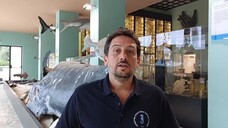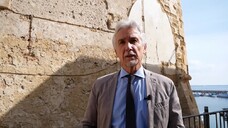Siti Internazionali
Se hai scelto di non accettare i cookie di profilazione e tracciamento, puoi aderire all’abbonamento "Consentless" a un costo molto accessibile, oppure scegliere un altro abbonamento per accedere ad ANSA.it.
Ti invitiamo a leggere le Condizioni Generali di Servizio, la Cookie Policy e l'Informativa Privacy.
In evidenza
In evidenza
Temi caldi
PressRelease
Green and digital transition challenge Europe's cohesion
PressRelease
Responsabilità editoriale di news aktuell
PressRelease - Responsabilità editoriale di news aktuell
In the future, major European cities and other high-tech regions will pull even further ahead, while rural areas and regions with CO2-intensive industry will lose out. The twin transition - green and digital - that the European Union is striving for will intensify this development. Only EU funding tailored to regions can mitigate the effect.
Gütersloh/Berlin, October 12, 2022. The green and digital transition will fundamentally change the economies of European regions. However, these regions are prepared very differently. While the opportunities predominate for regions that are already economically strong, weaker regions face additional challenges. Overall, already existing economic imbalances in Europe will be further exacerbated in the course of the twin transition. This is the conclusion of a Bertelsmann Stiftung study on the future of cohesion in Europe.
Southern European regions in the south of Italy, Spain and Portugal will see their future economic potential further limited by the twin transition. The same applies to Eastern European regions in Bulgaria, Poland and Romania on the EU's external borders, which face major challenges, particularly from the green transition. The situation in Western and Northern Europe is different. Europe's already most prosperous regions in Germany, Austria, the Netherlands and northern Italy have the best prospects of benefiting from the twin transition. "Our findings show that the twin transition will exacerbate polarization between regions in Europe," explains Thomas Schwab, Europe expert at the Bertelsmann Stiftung.
The authors of the study recommend that the EU no longer use per capita income as a guideline for the payment of subsidies. "We need to look more closely," Schwab says. "Is it the heavy concentration on fossil fuels that is holding a region back? Or is it the expansion of the Internet that's failing?" Nevertheless, the inequalities will not disappear. "European cohesion policy must accept that there will always be a certain level of inequality.“
Additional information
As part of its “Europe's Economy” project, the Bertelsmann Stiftung is investigating which economic, social and territorial imbalances are significant for the EU. It analyses how the structural changes associated with decarbonisation and digitalisation will affect Europe's economy and its cohesion. This study was prepared in cooperation with The Vienna Institute for International Economic Studies.
Our experts: Thomas Schwab, Phone: +49 (30) 27 57 88 - 132
E-Mail: thomas.schwab@bertelsmann-stiftung.de
Nathan Crist, Phone: +49 (30) 27 57 88 - 153
E-Mail: nathan.crist@bertelsmann-stiftung.de
Katharina Gnath, Phone: +49 (30) 27 57 88 - 128
E-Mail: katharina.gnath@bertelsmann-stiftung.de
About the Bertelsmann Stiftung: Inspiring people. Shaping the future.
The Bertelsmann Stiftung is committed to enabling social participation for everyone – politically, economically and culturally. Our programs include Education and the Next Generation, Democracy and Social Cohesion, Digitalization and the Common Good, Europe’s Future, Health, and Sustainable Social Market Economies. In our work, we focus on people, since only they can change the world and make it better. We share knowledge, promote expertise and develop solutions. A nonprofit foundation, the Bertelsmann Stiftung was established in 1977 by Reinhard Mohn.
PressRelease - Responsabilità editoriale di news aktuell
Ultima ora
Ultima ora












